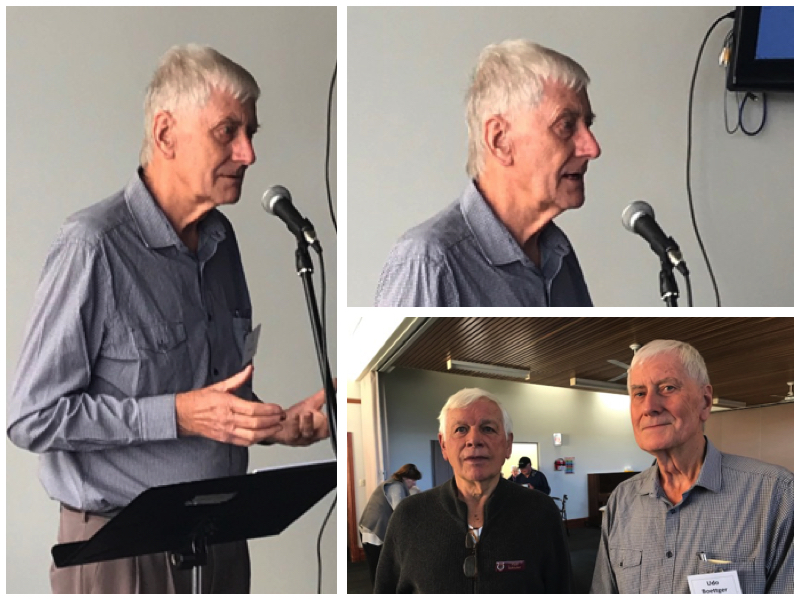The Lot of the Family Historian
by John Clarke
The family historian’s lot is to conduct research, gather information and put it in order. The lot of the family historian’s family, if the family historian dies before putting the information acquired in order (which is quite often the case), is to decide what to do with the extensive jumble.
At the last meeting of the German speaking group Kaffee und Kuchen the guest speaker was Udo Boettger. Udo’s father Rudolf died in 2018 in his one hundredth year. He had intended to write his life story, and sifting through the mass of material has fallen to Udo. Fortunately the story that has emerged is interesting, and that story was the topic of Udo’s talk.

Rudolf Boettger was born in 1919 in Jena in central Germany. Jena was a university city which through the university’s studies in medicine and science had developed into an important industrial centre. Carl Zeiss had opened a workshop in 1846, producing high quality microscopes and scientific equipment, and at the extensive Zeiss factory which grew from that workshop Rudolf found work.
When war broke out in 1939, Rudolf’s expertise saw him coopted by the Luftwaffe to serve in a technical rather than combat role. His war service took him to cities throughout Germany and into German occupied Russia.
He had married in 1941, and at the end of the war he and his wife Doris and daughter Brigitte made their home in the ruins of Jena, its industrial area having been targeted by Allied bombers. With the division of Germany Jena had become part of the German Democratic Republic, controlled by the Russians. In his memoirs Rudolf recorded the day of Udo’s birth in 1945. He had gone to fetch the midwife, but on returning through the fields and hoping to escape detection, he was intercepted by a Russian patrol. They forced him to join in a beer drinking game, and after a laugh at his expense he was allowed to continue on his way.
Life in Jena was hard, and in 1949 Rudolf decided he had had enough of living under Russian domination. Plans were made. Rudolf left first, travelling by several means of transport and many miles on foot, and eventually made it to the West.
Doris escaped with the help of her sister-in-law, who on reaching the border asked the guard a question which led to an interview in the guardhouse. Doris and her two children scrambled under the barrier and ran to safety. Security would be far less lax in the future.
The family was reunited in Oberkochen, where Rudolf had found work at the newly opened West German Zeiss factory. They lived there for five years. Udo started school and another daughter Angelika was born. But the aftermath of war was still felt, and Rudolf and Doris decided Australia would provide a better future for their children.
They travelled through Munich to Bremerhaven, took ship aboard the Norwegian liner Skaubryn, passed through the Suez Canal and found themselves at their new home: the Bonegilla migrant camp in north-eastern Victoria. It was meant to be a transition camp, but the Boettger family lived there for fifteen months, with Rudolf working as an attendant in the hospital.
Eventually work was offered in the aviation industry, and the family moved to a more permanent home in Salisbury North. Over the following years Rudolf was employed at the Weapons Research Establishment and at Holden’s, first in the Woodville factory and later in Elizabeth.
Rudolf was a keen photographer and artist, and as well as a written record of his life he has left many sketches and photographs for Udo to sort through. The history of his father’s life has just begun.
The next Kaffee und Kuchen meeting will be held at the Langmeil Centre, 7 Maria Street, Tanunda on Monday, 28 October at 1 pm.
